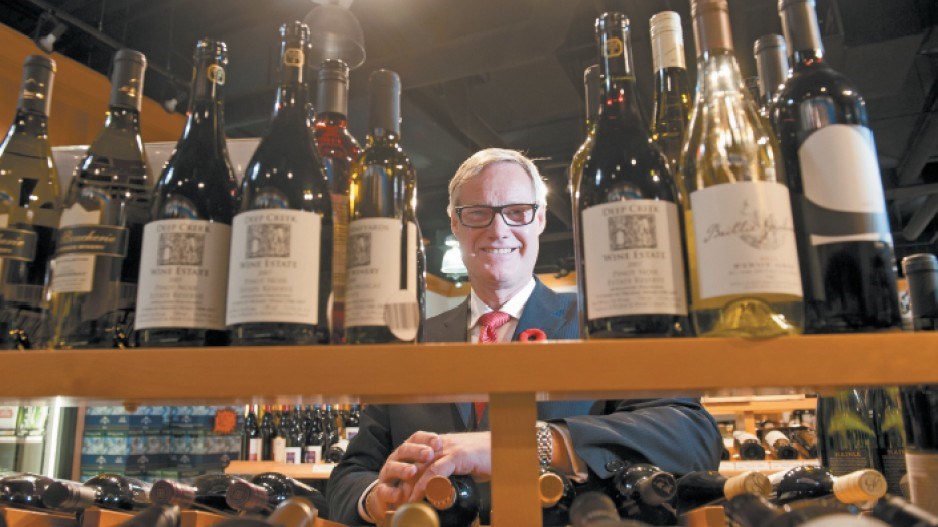The B.C. government will uncork a magnum of unintended consequences if it changes the law to allow beer and wine to be sold in grocery stores, according to industry insiders.
For starters, Victoria would likely face a string of lawsuits from disgruntled private liquor store owners seeking compensation for the damage it would do to their businesses, said Bert Hick, president of Rising Tide Consultants and a former British Columbia Liquor Control and Licensing Branch (BCLCLB) general manager.
Many of those entrepreneurs poured life savings into their liquor stores thanks to encouragement from politicians and bureaucrats. Hick said there could also be a rise in union activism as government liquor stores close to eliminate redundancy.
“It wouldn’t be economically viable to go to one place for your beer and wine and another place for your liquor,” Hick said. “And if you put liquor in grocery stores, what’s the point of having government liquor stores or even private licensee liquor stores?”
Closing government liquor stores has intermittently been part of the BC Liberals’ agenda.
Hick pointed out that when the government in 2002 lifted a moratorium on issuing private liquor store licences, Rick Thorpe, the minister in charge of the British Columbia Liquor Distribution Branch at the time, said government liquor stores would close if a community were well served with private stores.
That has not happened.
But Hick said that mass closures of government liquor stores would be unavoidable if every Safeway, Overwaitea or IGA Marketplace grocer sold alcohol.
When he headed the BCLCLB and was closely involved with the last major government review of liquor regulations in the late 1980s, Hick said the review concluded that, for a number of reasons, liquor should not be sold in grocery stores.
“For starters, how do you define a grocery store? If you allow the big stores, how can you not allow the mom-and-pop stores? Are you going to allow the selling of a 40-ouncer next to a slurpee machine at the 7-Eleven?”
Retailers, however, are excited about the extra revenue that selling liquor would generate.
Overwaitea Food Group director of communications Julie Dickson told BIV that the change would be good for business, and Mac’s Convenience Stores spokesman Doug Hartle said his chain would invest millions of dollars and open a handful more stores in B.C. if his chain could sell beer and wine.
Another unintended consequence is that grocery and convenience stores might have to lay off staff who are not of legal drinking age.
“Those aged under 19 years are not allowed to ‘sell or wrap liquor,’ according to the Liquor Distribution Act,” said Hamilton, Howell, Bain and Gould partner James Gould. “You’d have a hard time being a minor selling liquor because of that act.”
Parliamentary secretary John Yap spent several months consulting industry insiders and the public for ideas on how to modernize B.C. liquor laws. He wrapped up his review at midnight on October 31 and has until November 25 to write and file a report with recommendations to Justice Minister Suzanne Anton.




